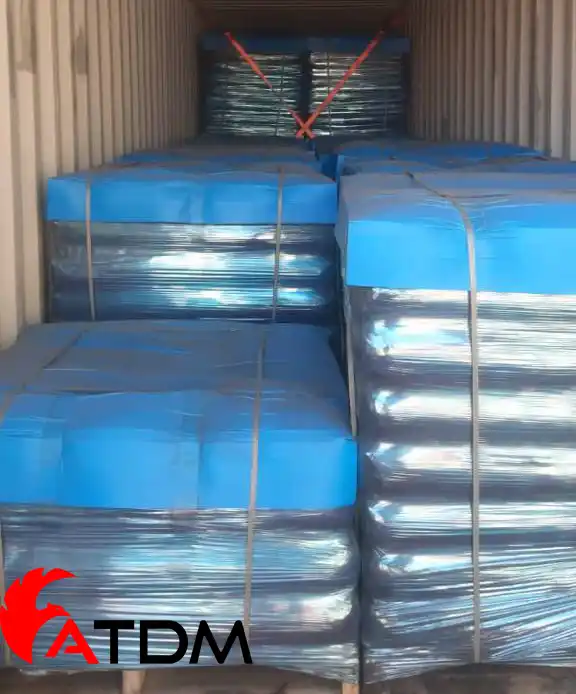


Gilsonite cementing has become one of the most trusted solutions for improving well integrity in the oil and gas industry. This naturally occurring solid hydrocarbon, also known as natural bitumen or asphaltite, plays a critical role in creating flexible, gas-tight, and durable cement sheaths. It helps drilling companies prevent gas migration, reduce fluid loss, and maintain zonal isolation even under extreme pressure and temperature conditions.
For industrial users, ATDM supplies high-purity Gilsonite cementing grades designed to enhance cement performance in all well environments.
Gilsonite cementing involves using finely ground natural asphalt as a performance-boosting additive in oil well cement slurries. When mixed with cement, Gilsonite’s thermoplastic nature allows it to soften slightly under heat and pressure, filling microscopic gaps and cracks that would otherwise cause leaks or gas migration.
This property makes it a valuable component for well sealing and long-term structural stability. Because Gilsonite is lightweight and hydrophobic, it reduces cement density while resisting water absorption, corrosion, and temperature damage.
Table of Contents
ToggleGilsonite has several physical and chemical features that make it uniquely suited for cementing operations:
Lightweight Filler – It reduces the slurry weight without compromising compressive strength.
Elastic and Flexible – Its thermoplastic behavior allows the cement sheath to move with pressure changes.
Gas Migration Control – Forms a gas-tight seal that blocks micro-channels during setting.
Thermal Resistance – Performs well in high-temperature zones, making it ideal for deep and geothermal wells.
Chemical Stability – Inert to most well fluids and drilling chemicals, ensuring long-term reliability.
Environmentally Safe – 100% natural mineral, easy to handle, and non-toxic.
When blended into cement, Gilsonite creates micropores that lower slurry density but retain strength. These particles act as a cushion that absorbs stress caused by thermal expansion and contraction. As the cement sets, Gilsonite expands slightly, filling any gaps that appear between the casing and the formation.
This action prevents both gas and fluid migration, resulting in a strong, flexible, and long-lasting seal—a crucial factor for well stability and production safety.
Gilsonite cementing additives are widely used in:
Oil and Gas Wells: To control gas migration and improve zonal isolation.
Geothermal Drilling: To handle extreme temperature fluctuations.
Lost Circulation Zones: To lighten slurry density and prevent fluid losses.
Plug and Abandon Operations: For permanent sealing and corrosion resistance.
Each of these applications benefits from the high-temperature tolerance and sealing strength that Gilsonite provides.
| Property | Unit | Typical Range |
|---|---|---|
| Appearance | – | Black solid, shiny |
| Softening Point | °C | 160–220 |
| Ash Content | % | 3–8 |
| Solubility (TCE) | % | 95–99 |
| Specific Gravity | – | 1.04–1.06 |
| Moisture | % | <1 |
| Particle Size (Micronized) | µm | 75–200 |
These properties can be customized to match cement design needs, pressure, and temperature ranges.
Using Gilsonite in cement slurry is simple but requires precise dosage and uniform blending. Follow these steps for best results:
Determine Target Slurry Density: Choose based on formation pressure and fracture gradient.
Add Gilsonite Powder: Typically 5–15% by weight of cement.
Blend Dry: Mix evenly before adding water to ensure complete dispersion.
Check Performance: Test compressive strength, thickening time, and fluid loss in the lab.
Adjust Concentration: Optimize based on gas migration control or slurry weight requirements.
Proper mixing ensures uniform particle distribution, giving the cement slurry enhanced sealing and flexibility.
Prevents gas migration and channeling
Reduces cement density for fragile formations
Improves bonding and sealing efficiency
Increases cement elasticity and toughness
Resists thermal shock in deep wells
Maintains stable properties over time
These benefits make Gilsonite one of the most cost-effective additives in modern well cementing formulations.
High-quality Gilsonite for cementing is supplied by ATDM, available in:
25 kg multi-layer paper bags
1-ton jumbo bags
Meltable PE bags for easy use
Bulk or containerized shipments
Shipments depart from UAE, Turkey, and Iran, serving clients across Asia, Africa, and South America with fast delivery and consistent quality.
ATDM provides Gilsonite with consistent purity, controlled particle size, and high solubility, ensuring compatibility with all major cementing systems. The company’s mining and refining process follows ASTM standards, guaranteeing performance and reliability.
Key supplier advantages:
Multiple grades tailored for various densities and well depths
Professional technical support for cement design
Competitive pricing with global logistics
Long-term partnerships with oilfield service companies
With decades of expertise and global distribution hubs, ATDM ensures reliability and top performance in every Gilsonite shipment.
Gilsonite cementing is a proven method for improving the sealing, flexibility, and thermal stability of well cement. Its natural composition offers a sustainable way to enhance performance while reducing operational risks.
For the highest-grade Gilsonite cementing materials, ATDM stands as a trusted global supplier — delivering quality, consistency, and technical excellence to every project.
A typical dosage is 5–15% by weight of cement, depending on well depth, pressure, and slurry density requirements.
Yes. Gilsonite is thermally stable and retains its structure even above 200°C, making it ideal for deep or geothermal wells.
Absolutely. It is compatible with most fluid-loss agents, retarders, and dispersants, and enhances the performance of blended systems.